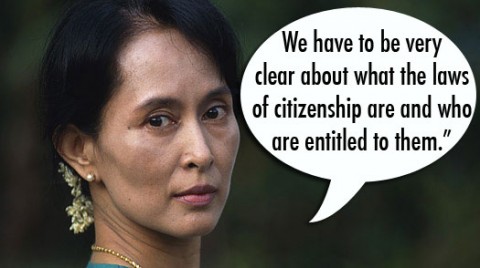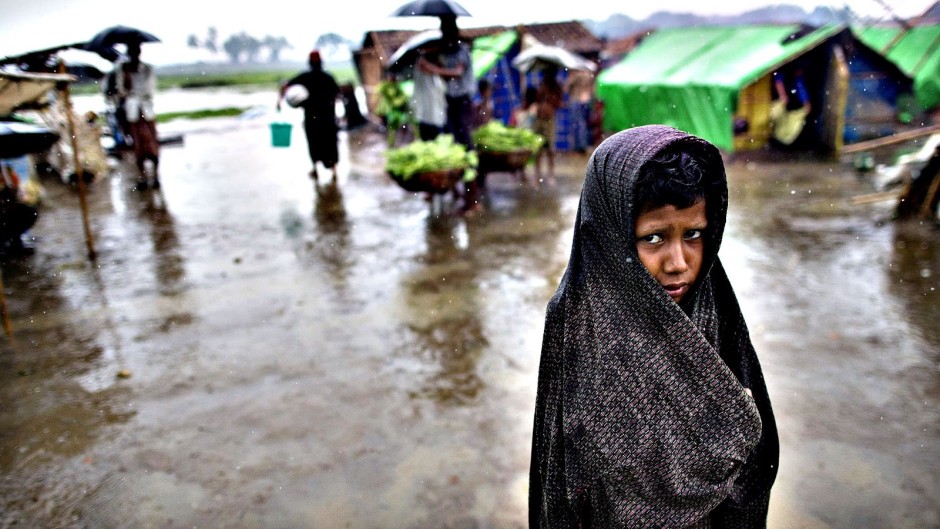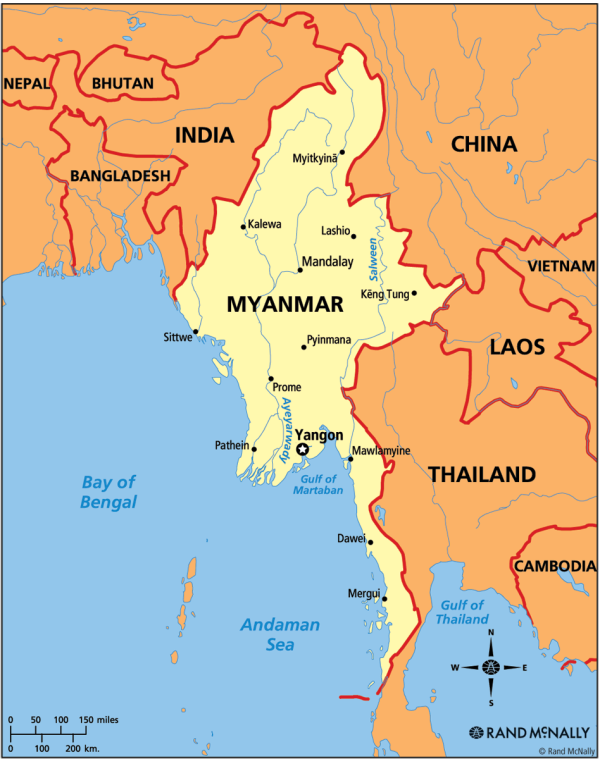Burma, or Myanmar — the country is known by both names — has for decades been one of the most oppressive states in Asia, under military rule between 1962 and 2010. Part of the reason stems from its many ethnic divisions, which has made it difficult to establish democracy in this southeast Asian nation.
Burma consists of seven regions populated chiefly by the Burmans, or Bamar, who make up two-thirds of the population of 60 million; and seven states inhabited mainly by indigenous ethnic minorities, including the Shan, Kayah, Mon, Kayin, Rakhine, Chin and Kachin.
When the Shan, Chin and Kachin minorities accepted a semi-federal constitutional framework in 1947, as Burma was about to emerge from British colonial rule, the Bamar majority guaranteed them autonomy. But the other minorities were not invited, and Kayin observers rejected the outcome.
Following the failure of these accords, the ethnic policy of the Bamar-dominated central government has alternated between dialogue and violent counter-insurgency. Hostility to the government’s Burmanization policies contributed to this alienation on the part of the minorities.
Since coming to power, following the country’s first elections after decades of military rule in 2010, President Thein Sein has said that peace with minority groups is a priority, and the government has signed individual cease-fires with many ethnic armed groups. It has also freed more than 1,100 political prisoners since the reforms began.
But leaders of ethnic minorities remain wary, pointing to the military’s continuing campaigns against ethnic armies in Kachin, Shan and other states. Fighting between the Kachin Independence Army and government forces since June 2011 has displaced more than 100,000 Kachins, with many seeking refuge in Yunnan Province, in neighbouring China.
“The ethnic nationalities want to set up a federal system,” David Tarkapaw of the United Nationalities Federal Council, an umbrella organization representing 11 ethnic armed groups, asserted recently, and this will require “agreement on some basic changes to the constitution” that came into force in 2008.
Meanwhile, another serious issue has come to the fore, involving the country’s small Muslim minority, who consist of somewhere between four and eight per cent of the population.
This is a legacy of the colonial past, when Burma was part of the British Indian Empire. Indians, many of them Muslims, came as civil servants and soldiers, stirring resentment among Burmese Buddhists. Radical monks have built on those historic grievances, stating that Muslims are having more children than Buddhists and could dilute the country’s Buddhist character.
A growing Buddhist movement known as “969” is campaigning for a boycott of Muslim products and businesses and a ban on interfaith marriages. “If we are weak,” Ashin Wirathu, the spiritual leader of the radical movement has declared, “our land will become Muslim.”
The suggestion that Muslims leave the country has been a common refrain during the violence, which bewilders many Muslims who have always considered themselves Burmese.

There is particular disdain for a group of about one million stateless Muslims, who call themselves Rohingya, some of whom migrated from neighboring Bangladesh. The local authorities in the western state of Rakhine, where most live, have imposed a two-child limit for Muslim Rohingya families, a policy that does not apply to Buddhists.
Human Rights Watch has accused the authorities of fomenting an organized campaign of “ethnic cleansing” against the Rohingya.
In recent months, Buddhist mobs have killed more than 200 Muslims and forced more than 150,000 people from their homes. Thousands of stateless Rohingya people remain segregated in camps. In January, at least 40 Rohingya were killed at a village in Rakhine state called Du Chee Yar Tan.
This year, the government expelled Doctors Without Borders, which had been providing health care for the Rohingya. Mob attacks have forced out other humanitarian organizations.
All of this has tarnished the image of opposition leader Aung San Suu Kyi, winner of the Nobel Peace Prize in 1991 and a revered advocate of democratic government, who was released from years of house arrest in 2010. Now head of the National League for Democracy (NLD), she has been criticized for failing to speak out strongly in defence of these stigmatized Muslims.
Asked at a news conference in 2012 whether the Rohingya should be given citizenship, she equivocated. “We have to be very clear about what the laws of citizenship are and who are entitled to them,” she responded. She also claimed that violence “has been committed by both sides.”

“I think everyone agrees now she has been a disappointment when it comes to human rights promotion,” said David Mathieson, Human Rights Watch’s senior researcher on Myanmar.
Clearly, if Burma is to successfully continue its transition to democracy, critical problems of ethnic discord remain to be properly managed and resolved. And the NLD needs to realize that ethnic relations must be accorded a full place alongside democratization.
Henry Srebrnik is a professor of political science at the University of Prince Edward Island.


